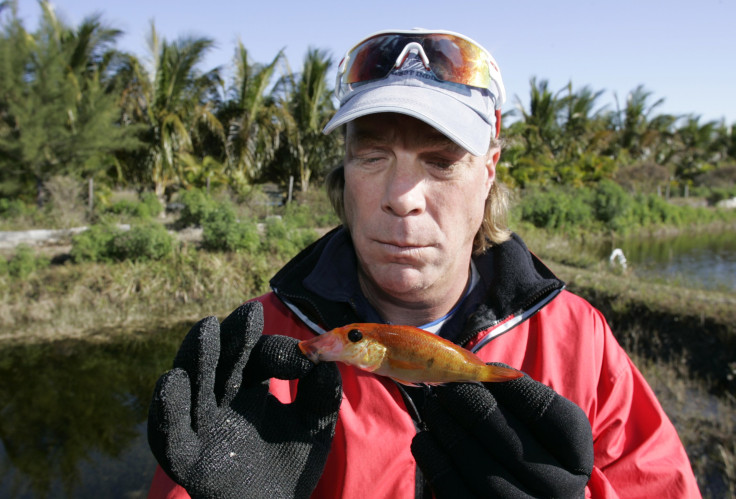Bizarre sexual reproduction: Scientists may have found a reason why the female fish grew testicles and fathered offspring

In a most bizarre discovery, researchers have found out that a tropical freshwater fish known as a cichlid, in the aquarium room at U.K.'s Hull University, developed a male sex organ, fertilised her own eggs and even produced four offspring. Researchers are utterly shocked to find the typical-looking female fish do the unthinkable.
The tropical freshwater fish, known as cichlid, after giving birth to 42 more offspring over the subsequent year, became the first documented case of “selfing” in an otherwise sexually reproducing vertebrate (animal with a backbone and/or spinal column).
Selfing refers to having sex with oneself and breeding. Although mangrove killifish has been found to be selfing, however, for them it is the main mode of reproduction. The practise is rare in vertebrates.
Scientists crossed two different species of cichlids and produced what they assumed was a normal yet hybrid female fish. Hybridisations of this kind have happened before in laboratories and also in nature. Scientists, after the fish’s death, found out that it was intersex, that is, it had both male testis and female ovaries.
“In the mangrove killifish, selfing is an adaptation. It is believed that it can be hard for them to find a mate, and selfing is better than not producing at all,” said lead author Assistant Professor Ola Svensson.
This is an extreme case of bizarre sexual reproduction. The breeding took place in the mouth of the fish. The fertilisation took place inside the mouth.
“If some spermatozoa are released together with the eggs, they may be fertilised upon release, or in the mouth of the fish,” said senior author Professor Cock van Oosterhout of the University of East Anglia.
DiscoveryNews reports that this recent case is unusual as the fish is both mother and father to its offspring. Shockingly, none of the offspring were capable of selfing. They were able to reproduce normally though. However, the offspring showed minimal genetic diversity. This has made the scientists think that if selfing is such an unsuccessful way of reproduction, why did it evolve at all?
Prof van Oosterhout believes that selfing can be advantageous for those species having a very low population size and those who have amazing colonising potential. Selfing may have evolved as for these species, finding a mate was most difficult.





















